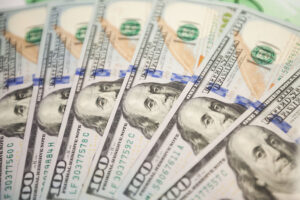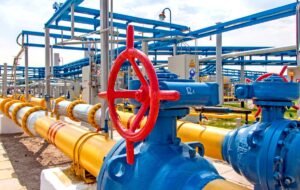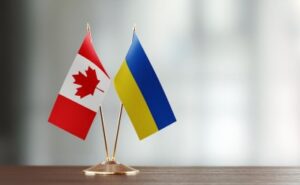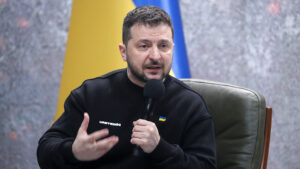
Beton Complex” LLC, which is a part of industrial and construction group (ICG) “Kovalska”, according to the results of 2021 increased net profit in 2,4 times in comparison with 2020 – up to 34,6 million UAH.
According to the annual report of the company in the system of information disclosure of the National Commission on Securities and Stock Market (NSCSM), released on March 27, 2023, the company’s revenue in 2021 increased by 9.7% to 1.37 billion UAH.
The company’s retained earnings increased fivefold, to UAH 39.4 mln. Over the year, long-term liabilities also increased fivefold and amounted to UAH 439.4 mln, while current liabilities decreased by 26.4% to UAH 254.8 mln.
The value of Beton Complex assets in 2021 increased by 61% and amounted to UAH 774 mln.
In 2021 the company has produced 876.4 thousand tons of concrete mortars for 465.4 million UAH, 194.7 thousand tons of precast elements for 456.9 million UAH, 172.7 thousand tons of tiles, cement, concrete and artificial stone for 379.8 million UAH, 113.3 thousand tons of blocks and bricks for 90 million UAH.
According to the company’s data the company invested 40 mln hryvnias in equipment modernization during the mentioned reporting period.
Concrete Complex has been on the market since 1970. Since 2004 it has been a part of Kovalska group. Annual production capacity of the enterprise is 78 thousand cubic meters of reinforced concrete and 155 thousand cubic meters of paving slabs. The company also produces shaped elements of paving under the brand names “Avenue” and “Avenue Decor”.
According to Opendatabot, the owner of 100% of Beton Complex registered capital is OOO PSG Kovalska (Kiev), beneficiaries – Oleksandr and Serhiy Pylypenko.

The ICE-calculated index showing the U.S. dollar’s performance against six currencies (euro, Swiss franc, yen, Canadian dollar, pound sterling and Swedish krona) is up 0.25% in the morning session.
The euro/dollar pair is trading at $1.0834 as of 9:20 a.m. Q, versus $1.0847 at the close of Tuesday’s session, with the euro losing about 0.1%.
The pound sterling is down 0.15% and is trading at $1.2322 versus $1.2342 at the close of last session.
The dollar-yen exchange rate jumped 0.8% to 131.96 yen against 130.88 yen the day before.
The active growth of the dollar against the yen was due to a decrease in demand for protective assets, including the Japanese currency, on fears weakening on the expansion of the banking crisis and its impact on the global economy, writes Trading Economics.
The Australian dollar fell 0.5% against the U.S. dollar to $0.6676.
As reported, inflation in Australia slowed to 6.8% in February from January’s 7.4%. Analysts had expected a more moderate slowdown to 7.1%. The February figure was the lowest since last June.

Gas transit through Ukraine increased again after completing the usual weekend decline – to the standard level.
UKRAINIAN TRANSIT
“Ukraine’s GTS Operator (OGTSU) accepted a 42.4 million cubic meters transit request from Gazprom for Tuesday, the Ukrainian company said. The nomination for Monday was 40 million cubic meters. The capacity is claimed for only one of the two entry points into the country’s GTS, the Sudzha gas metering station. No bid was accepted for the corridor through the Sohranovka gas metering station.
EUROPEAN MARKET
Electricity generation from wind turbines in Europe last week already accounted for 21% of the region’s needs. Monday’s figure is roughly the same (20.8 percent), according to the WindEurope Association.
On Monday the price of gas rose by 4%. The day-ahead contract at the TTF hub in the Netherlands closed at $481 per thousand cubic meters.
The gap in LNG prices in Asia compared to Europe is noticeable. The May JKM Platts futures (Japan Korea Marker, reflecting the spot market value of cargoes shipped to Japan, South Korea, China and Taiwan) traded at $447; the North West Europe LNG futures (LNG North West Europe Marker) was $426.
RESERVES IN EUROPE
Europe’s current gas reserve level is 56.02%, 22 percentage points above the average for the same dates over the past five years, according to Gas Infrastructure Europe (GIE).
Gas reserves rose by a symbolic 0.05 percentage points on the weekend of March 26. The inventory build-up has continued for five days in a row.
European LNG receiving terminals operated at an average capacity of 63 percent in February and have been showing 66 percent utilization since early March. US STORAGE STOCK.
The state of U.S. UGS inventories is becoming increasingly important to the global market as the country actively ramps up exports.
During the next reporting week, reserves dropped by 2 bln cubic meters – a noticeable increase (60%) from the normal level at that time.
The current inventory level is 39%, 23 percentage points above the average for the last five years, according to the U.S. Department of Energy’s Energy Information Administration (EIA).
Freeport LNG, the largest U.S. LNG plant, has restarted all three liquefaction lines. This reduces the surplus gas in the U.S. market and increases global supply.

Canada is going to provide a $1.8 billion loan to Ukraine through the International Monetary Fund (IMF) in budget year 2023, CBC TV channel reported with reference to the country’s draft budget.
“Canada will extend a $2.4 billion Canadian dollars ($1.8 billion) loan to Ukraine in the coming budget year. The measure is contained in the latest federal budget, tabled in Parliament on Tuesday by Finance Minister Chrystia Freeland,” the report said.
The loan for Ukraine will be distributed through the IMF. It is intended to cover the budget deficit and pay for social services, including medical services.
According to the TV channel, separately, the Canadian federal budget also announced CAD 84 million (almost $62 million) in additional direct humanitarian aid for Ukraine in the coming fiscal year – money which will be used for mental health services, the removal of mines and other measures. The money will come out of the existing budget at Global Affairs Canada.

Honorary president of the Ukrainian Gymnastics Federation, member of the executive committee of the National Olympic Committee (NOC), honored coach of Ukraine Albina Derugina passed away at the age of 92, according to the NOC Facebook page on Wednesday.
“On behalf of the entire Olympic family we express our sincere condolences to Albina Nikolayevna’s family, friends, colleagues and pupils. Blessed and kind memory,” the message reads.
The NOC noted that Deryugina came to rhythmic gymnastics at the dawn of its birth and is considered the founder of the sport in Ukraine.
“Over the years she brought up more than one generation of gymnasts who won Olympic awards, won world and European championships, increasing the sporting fame of Ukraine. Today her students are known throughout the world and the solid foundation she laid allows her to bring more and more Ukrainian talents to the podium, maintaining the unique style of the Ukrainian school of rhythmic gymnastics,” underlined the Committee.
Deryugina was the head coach of the USSR national rhythmic gymnastics team until 1992 and since 1986 she has been the President of the Rhythmic Gymnastics Federation. In Kiev, she organized a school of rhythmic gymnastics, which gained worldwide fame.
After 1992 she was a head coach of the Ukrainian team, a member of the executive committee of the National Olympic Committee of Ukraine. Deryugina is a Hero of Ukraine, Honored Coach of Ukraine, Honored Worker of Physical Education and Sports of Ukraine.

President of Ukraine Volodymyr Zelenskyy invited Chinese leader Xi Jinping to Ukraine.
In an interview with the Associated Press, it is noted that Zelenskyy extended an invitation to Ukraine to one notable and strategically important leader, Chinese President Xi Jinping.
“We are ready to see him here. I want to speak with him. I had contact with him before full-scale war. But during all this year, more than one year, I didn’t have,” the Associated Press said, citing Zelenskyy.